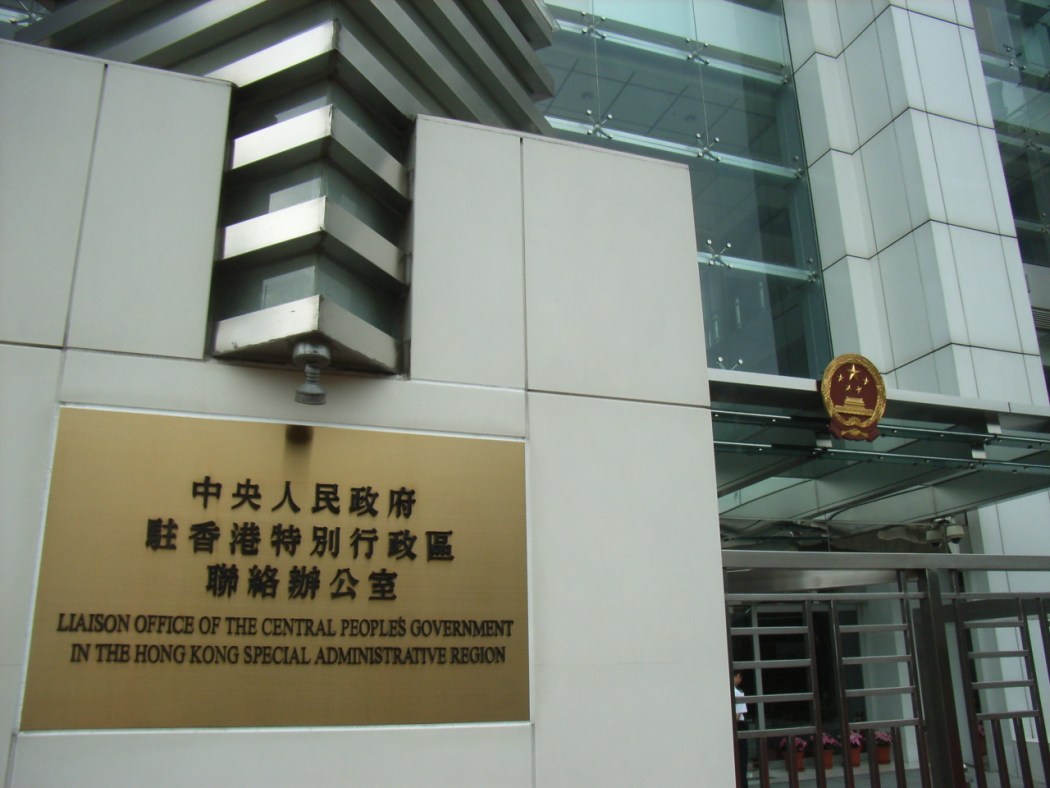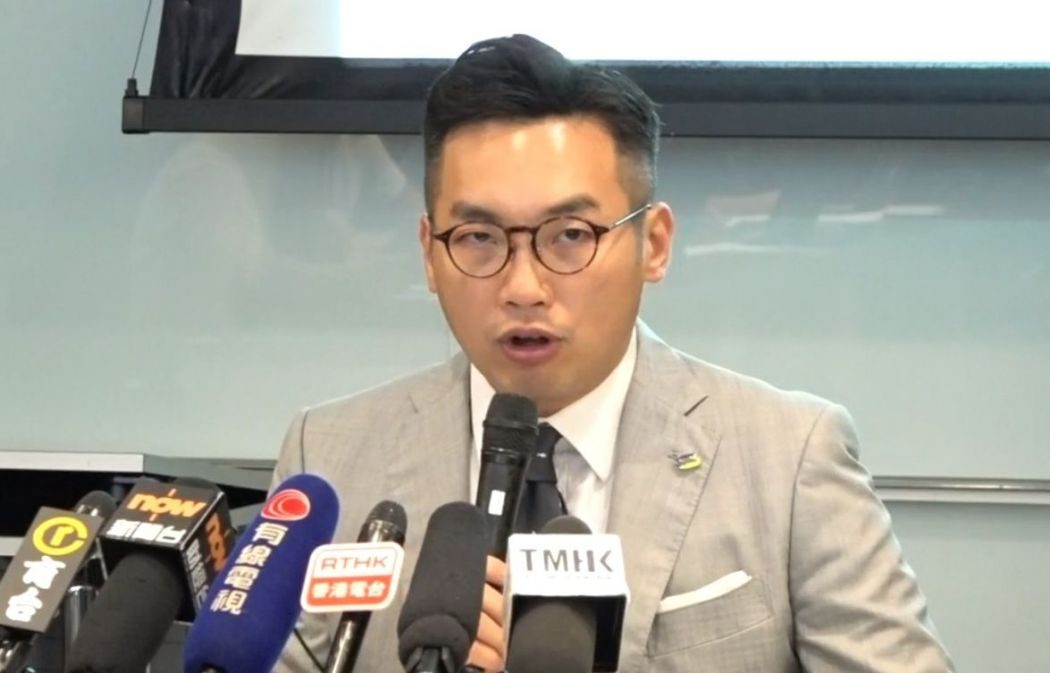The China Liaison Office and the Hong Kong and Macau Affairs Office (HKMAO) issued two separate statements on Monday in support of Chief Executive Carrie Lam’s position on the absence of the separation of powers in Hong Kong.
The Liaison Office said it was “necessary to clarify that the HKSAR government is, in principle, executive-led.” It also urged the public to “respect its historical root and have common sense.”

The Liaison Office further stated that the three branches of government – the executive, the legislature and the judiciary – report to the central government in Beijing through the chief executive. This supported the belief that the city is governed by an “executive-led” system, it said.
“The HKSAR political systems can be summarised as the division of three powers, executive-led, judicial independence, the executive reports to the central government on behalf of the HKSAR.”
What is the ‘separation of powers’?
Separation of powers refers to the division of government into distinct branches – the executive, legislature and judiciary – to prevent any one branch from overstepping its constitutional role and abusing power.
The executive is generally referred to as the “government,” which oversees the daily administration of the territory’s bureaucracy. The Legislative Council is the legislature or parliament of Hong Kong, while the judiciary includes all levels of courts.
However, the constitutional powers of the three branches in Hong Kong are not equal. For example, under Article 74 of the Basic Law, lawmakers can only introduce bills relating to government policies with the consent of the chief executive, and cannot introduce bills relating to public spending, political structure and the operation of the government. This limits the lawmaking power of the legislature.
See also: Explainer: Separation of powers, judicial reviews and the legal bid to stop localist lawmakers
Meanwhile, HKMAO’s statement said an executive-led system is a key characteristic of Hong Kong’s system of governance. It also suggested people had sought to manipulate the phrase to expand legislative and judicial powers, which implied calls for independence.
“Some people in Hong Kong society deliberately confuse the public with their advocacy for the separation of powers. But they are in fact conspiring to expand the legislative and judicial powers, weaken the chief executive and the HKSAR government’s governing authority, and prevent central authorities from exercising overall jurisdiction [over Hong Kong].”
“They seek to challenge the HKSAR’s constitutional order, and turn Hong Kong into an independent political entity separate from the central government.”

The statements followed an op-ed in the state-owned newspaper Ta Kung Pao last Friday, which argued that assertions of the existence of the separation of powers in Hong Kong with calls for independence – an offence under the national security law: “The opposition camp is replaying the old tune on the ‘separation of powers,’ which does not exist. They aim to deny the central government’s full authority to rule over Hong Kong.”
“They are attempting to change Hong Kong into an ‘independent’ or ‘semi-independent’ political entity, their intentions are extremely sinister.”
Asked by HKFP whether it supported Lam’s comments, the Hong Kong national security bureau said it “supports the view of chief executive and the secretary for education about the separation of powers.”
‘Extremely worrying’
Pro-democracy lawmaker Alvin Yeung of the Civic Party slammed what he described as “unprecedented” statements from Lam’s administration and the two Beijing agencies on the separation of powers.

“Since day one, nobody has really questioned [the separation of powers]… over the past years, everybody including the courts and the executive branch accepted the… relationship between the three branches [of government].”
“Now, nobody really knows the rationale behind why Carrie Lam [is] suddenly making a fuss and why the two offices are making such comments.”
“When they say there is no such thing as the separation of powers, we have to think: what is the rationale? Why did they come out and argue in this way out of nowhere twenty-odd years after the handover? I don’t think it’s a purely academic [question].”

Yeung added the denial of the separation of powers, when considered in the context of recent criticisms from the pro-Beijing camp of the courts, was a major cause for concern: “When read together with the criticism by the pro-Beijing camp… it’s reasonably suspicious,” he said.
“These people are targeting the courts and individual judges. That’s extremely worrying.”
“Without judicial independence, how on earth can people still believe in Hong Kong? [The separation of powers] is the foundation and underlying principle of Hong Kong’s past success.”
Chief Executive Carrie Lam made her controversial statement during a press conference last Tuesday, echoing Secretary of Education Kevin Yeung, who earlier aired support for the removal of the phrase from Liberal Studies textbooks. Secretary for Justice Teresa Cheng also sought to explain the existence of the city’s executive-led system in a blog post on Saturday.
Additional reporting by Rachel Wong.
Support HKFP | Policies & Ethics | Error/typo? | Contact Us | Newsletter | Transparency & Annual Report | Apps
Help safeguard press freedom & keep HKFP free for all readers by supporting our team
























